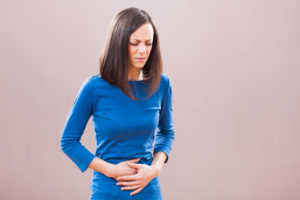 Hormonal contraception seems to be near-universal, with most women either currently using it or having used it at some point in their lives, whether to prevent pregnancy, to alleviate troublesome menstrual symptoms, or to ease symptoms of ovarian cysts, endometriosis, or fibroids. . Hormonal contraception is highly effective, more than 99% when used as directed, and easy. At its most complicated, a woman simply takes a pill at the same time every day, such as at breakfast time. Other forms are even easier, ranging from a contraceptive patch that is replaced each week, to contraceptive implants that stay in place a full four years. Whichever form is used, there is no need to interrupt foreplay or delay intercourse.
Hormonal contraception seems to be near-universal, with most women either currently using it or having used it at some point in their lives, whether to prevent pregnancy, to alleviate troublesome menstrual symptoms, or to ease symptoms of ovarian cysts, endometriosis, or fibroids. . Hormonal contraception is highly effective, more than 99% when used as directed, and easy. At its most complicated, a woman simply takes a pill at the same time every day, such as at breakfast time. Other forms are even easier, ranging from a contraceptive patch that is replaced each week, to contraceptive implants that stay in place a full four years. Whichever form is used, there is no need to interrupt foreplay or delay intercourse.
Hormonal contraception is so widely used, it’s safety is easy to take for granted. However, it’s important to know how these products work and what effects they may have on the body.
How Hormonal Contraception Works
There are several different version of hormonal contraception, but they all work in the same basic ways. They all use synthetic hormones that prevent pregnancy in a couple of different ways. First, the pituitary gland is blocked from producing hormones responsible for ovulation. Second, the cervical mucus is thickened, impairing sperm mobility, Finally, the uterine lining is altered to prevent a fertilized egg from implanting. In this way, hormonal contraceptives work on a woman’s body systemically, rather than locally as barrier methods and spermicides. Because of this, hormonal contraceptives can produce side effects and pose risks that are not present with other forms of contraception.
Side Effects
Hormonal contraception can cause a number of side effects, some mild and relatively harmless, such as nausea and breast tenderness, and others more troublesome, such as blood clots.
Spotting – About half of all women on hormonal contraception experience spotting between periods, known as breakthrough bleeding. This is most common in the first couple of months of use, and generally resolves itself within about three months.
Missed periods – Some types of hormonal contraception are intended to stop regular periods, but if you miss an expected period, or have a very light period, you should consider getting a pregnancy test before starting your next round of contraceptive.
Nausea – Some women experience mild nausea that generally resolves in a couple of months. In the case of the pill, taking it with a meal or at bedtime can help.
Breast tenderness – The hormones can cause breasts to become enlarged or tender for the first few weeks of use. Cutting back on caffeine and salt, and wearing a supportive bra can help.
Headaches – Different types of hormones can cause different headache symptoms, and women who are prone to migraines may be notice an increase in the occurrence or severity of migraines.
Weight gain or bloating – Clinical studies have failed to identify a link between hormonal contraception and weight gain, but many women have reported experiencing these side effects.
Mood changes – Women with a family or personal history of depression or other mood disorders may be at increased risk of experiencing depression or other emotional disturbances.
Changes in libido – For some women, the hormones can decrease sex drive. In others, relief from menstrual symptoms or symptoms of endometriosis or fibroids can lead to an increase in desire.
Changes in vaginal discharge – Many women report changes in the amount or nature of vaginal discharge. Dryness can be eased with a water-based lubricant. Some women may experience more yeast infections, which can be treated with over the counter medication.
Pain during intercourse – Some women experience pelvic pain or pain during intercourse while using hormonal contraception. In some cases this may be caused by dryness or decreases in libido caused by the hormones.
Blood clots – Approximately 3 to 10 out of every 10,000 women who use hormonal contraception experience potentially serious blood clots. Women who are overweight or over the age of 35 are at increased risk, as are those who smoke or have recently given birth. If you experience breathing problems, chest pain, or pain or swelling in the lower leg, seek immediate medical attention.
All types of contraception, hormonal and otherwise, have come a long way in recent years. If you experience any troublesome side effects while using hormones, talk to your doctor.